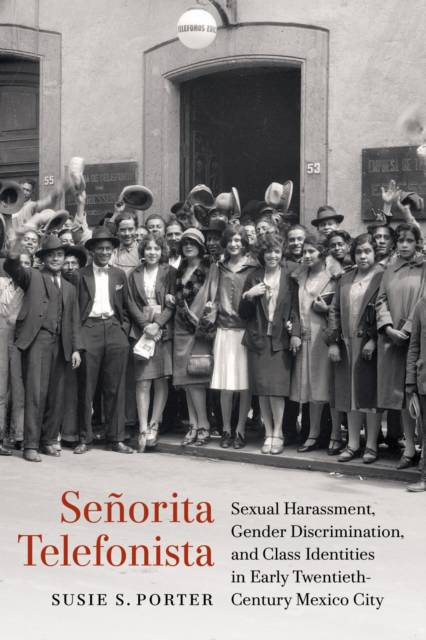
- Afhalen na 1 uur in een winkel met voorraad
- In januari gratis thuislevering in België
- Ruim aanbod met 7 miljoen producten
- Afhalen na 1 uur in een winkel met voorraad
- In januari gratis thuislevering in België
- Ruim aanbod met 7 miljoen producten
Señorita Telefonista
Sexual Harassment, Gender Discrimination, and Class Identities in Early Twentieth-Century Mexico City
Susie S PorterOmschrijving
In Señorita Telefonista Susie S. Porter recounts the dynamic role of telephone operators in labor organizing in early twentieth-century Mexico City, taking us from switchboards to union halls and into the streets as working women fought for better wages and against sexual discrimination and harassment. The telephone operators' struggles reveal how bodily autonomy is historically contingent and constructed through the lived experiences of class. When and where were working-class identities available to women who wanted to make demands as workers? How did middle-class conceptions of respectability, sexual and otherwise, limit the space for working women to speak against male authority and to denounce assaults on their bodily autonomy? Porter charts the shifts in the ways women could (or could not) speak out against discrimination related to gender, marital status, and pregnancy.
Señorita Telefonista examines the emergence of the idea that women were maladapted to the workplace and charts Mexican women's fight to claim their rights as workers. As languages of class circulated and identities were made and unmade--by management, organized labor, working men, and working women themselves--women's support for organized labor hung in the balance.
Specificaties
Betrokkenen
- Auteur(s):
- Uitgeverij:
Inhoud
- Aantal bladzijden:
- 316
- Taal:
- Engels
- Reeks:
Eigenschappen
- Productcode (EAN):
- 9781496244307
- Verschijningsdatum:
- 1/05/2026
- Uitvoering:
- Hardcover
- Formaat:
- Genaaid
- Afmetingen:
- 152 mm x 229 mm

Alleen bij Standaard Boekhandel
Beoordelingen
We publiceren alleen reviews die voldoen aan de voorwaarden voor reviews. Bekijk onze voorwaarden voor reviews.









